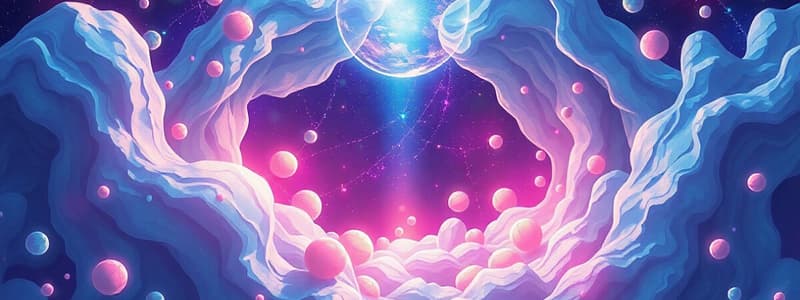Podcast
Questions and Answers
What is the mechanism of action of barbiturates?
What is the mechanism of action of barbiturates?
Inhibit neuronal impulse conduction in the ascending RAS; depresses the CNS
Which of the following are names of -barbital drugs?
Which of the following are names of -barbital drugs?
- Phenobarbital
- Butobarbital
- Pentobarbital
- All of the above (correct)
Which of the following are indications for barbiturates?
Which of the following are indications for barbiturates?
- Anxiety disorders
- Pre-anesthesia seizures
- Sedation
- All of the above (correct)
Which of the following are contraindications for barbiturates?
Which of the following are contraindications for barbiturates?
Barbiturates are safe to take during pregnancy.
Barbiturates are safe to take during pregnancy.
Which of the following is the main route of absorption for barbiturates, according to the image?
Which of the following is the main route of absorption for barbiturates, according to the image?
What is the approximate peak time for barbiturates after absorption, as indicated in the image?
What is the approximate peak time for barbiturates after absorption, as indicated in the image?
Which of the following are adverse effects of taking barbiturates?
Which of the following are adverse effects of taking barbiturates?
Which of the following is a listed adverse cardiovascular effect?
Which of the following is a listed adverse cardiovascular effect?
Respiratory depression is a listed adverse side effect of taking barbiturates.
Respiratory depression is a listed adverse side effect of taking barbiturates.
What is a severe adverse effect listed in the image?
What is a severe adverse effect listed in the image?
According to the image, which of the following drugs has Drug-Drug interactions with Barbiturates?
According to the image, which of the following drugs has Drug-Drug interactions with Barbiturates?
Flashcards
Barbiturates
Barbiturates
Drugs that depress the central nervous system (CNS) and have a longer duration in the body.
Barbiturates: Mechanism of Action
Barbiturates: Mechanism of Action
Inhibition of neuronal impulse conduction in the ascending reticular activating system (RAS), leading to CNS depression.
Examples of Barbiturates
Examples of Barbiturates
Examples include Phenobarbital, Butobarbital, and Pentobarbital.
Barbiturates: Indications
Barbiturates: Indications
Signup and view all the flashcards
Barbiturates: Absorption
Barbiturates: Absorption
Signup and view all the flashcards
Barbiturates: Contraindications
Barbiturates: Contraindications
Signup and view all the flashcards
Barbiturates: Adverse Effects
Barbiturates: Adverse Effects
Signup and view all the flashcards
Barbiturates: Cardiovascular Effects
Barbiturates: Cardiovascular Effects
Signup and view all the flashcards
Barbiturates: Respiratory Effect
Barbiturates: Respiratory Effect
Signup and view all the flashcards
Barbiturates: Drug Interactions
Barbiturates: Drug Interactions
Signup and view all the flashcards
Study Notes
Barbiturates
- High risk of toxicity
- Lasts longer in body
Mechanism of Action
- Barbiturates inhibit neuronal impulse conduction in the ascending reticular activating system (RAS).
- This results in depression of the central nervous system (CNS).
Names
- Barbitals include Phenobarbital, Butobarbital, and Pentobarbital.
Indications
- Used for anxiety disorders
- Used for pre-anesthesia seizures
- Used for sedation
- Used for acute manic reactions
- Used for insomnia
Pharmacokinetics
- Absorbed in the GI tract
- Peak occurs 20 minutes to 1 hour after administration.
Contraindications
- Latent or manifest porphyria is a contraindication
- Liver/kidney dysfunction is a contraindication
- Respiratory distress is a contraindication
- Pregnancy is a contraindication
Adverse Effects
- Sedation
- Drowsiness
- Somnolence
- Ataxia
- Hallucinations
- Nausea/Vomiting (N/V)
- Cardiovascular effects: Bradycardia, Hypotension, Syncope
- Respiratory depression (Hypoventilation)
- Steven Johnson Syndrome
Drug-Drug Interactions
- Other drugs that depress the CNS such as Alcohol, Anticoagulants, Digoxin, and Contraceptives
Studying That Suits You
Use AI to generate personalized quizzes and flashcards to suit your learning preferences.
Description
Barbiturates depress the CNS by inhibiting neuronal impulse conduction. They are used for anxiety, seizures, sedation, and insomnia. Adverse effects include sedation, drowsiness, ataxia and respiratory depression.




